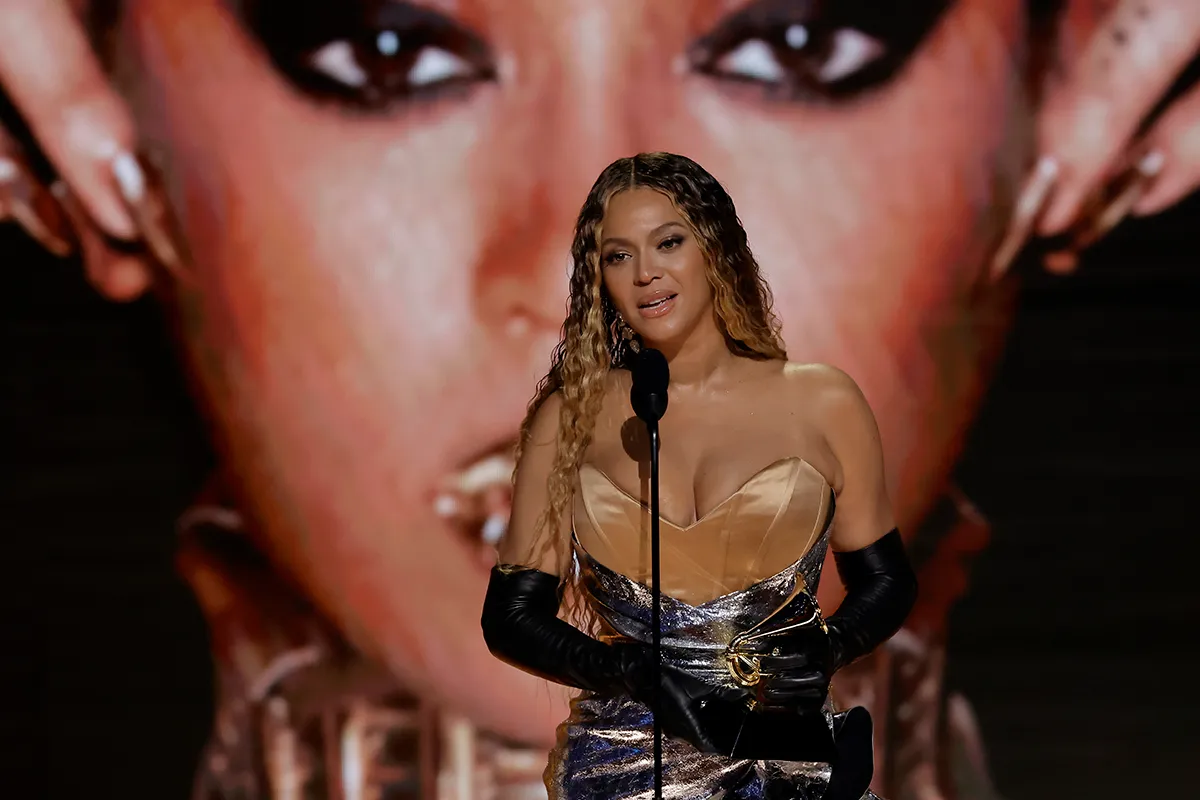A new Beyoncé album has become, arguably, one of the few pop cultural occurrences in America that holds real weight to it. The explosion on Twitter was sign enough. But even the Queen isn’t perfect, as was evident on the following Monday. Beyoncé’s publicist announced they would be removing an ableist slur from Renaissance‘s 11th track, “Heated,” after receiving pressure from disability rights activists to do so.
Why People Were Upset
“Heated” lists Beyoncé and Drake among its writers. Unfortunately, to talk about why the term is offensive and why there has been so much recent discussion around this particular word, we should identify it. The line from “Heated” in question is: “Sp*zzin’ on that ass, sp*zz on that ass.”
Now, you might be doing a double take if you pay attention to popular music. Because Lizzo apologized and removed the same word from her song “Grrrls” in June. Six weeks before Renaissance was released. Six weeks is—this is true—not long enough to forget that a prominent artist offended a community with a specific word.
Hannah Diviney, an Australian writer and disabilities advocate, pointed out the hurtfulness of the term in “Grrrls” in a Tweet that eventually went viral. Diviney pointed out that the word “sp**” derives from the word “spastic,” a shorthand for Spastic Diplegia. Spastic Diplegia is one form of cerebral palsy and affects the muscles in the legs, making them “stiff and contracted.”
It’s a word that has, unfortunately, had an uncomfortable place among regrettable American slang since the late ’70s. As someone who lived through the ’90s (technically speaking), it feels to me very much of the same time and genre as bros berating “feminine” behavior as “gay.” So as Diviney pointed out: “It’s 2022. Do better.” And so, less than 48 hours later, Lizzo responded and apologized from her Twitter account—with a new and updated version of the song already in hand. (Side note: Lizzo, you are the best.)
Fast forward six weeks. After the word appeared twice in a single line in “Heated,” Diviney wrote a column for the Guardian, expressing her frustration and disappointment this happened again and so freaking soon.
“It’s not very often that I don’t know what to say, rendered speechless by ignorance, sadness and a simmering anger born of bone-deep exhaustion,” Diviney wrote. She continues, “I thought we’d changed the music industry and started a global conversation about why ableist language – intentional or not – has no place in music.”
By Monday, a representative for Beyoncé issued a statement: “The word, not used intentionally in a harmful way, will be replaced.” The new word is “blastin’.” Honestly? Objectively better in every way. The assonance of “blast” and “ass” is quite nice. (Heh heh, “assonance.”)
While it’s absolutely important and good that Beyoncé listened and responded to this feedback, NPR’s story about the situation pulled an important pre-existing quote from Vilissa Thompson, a Black disability activist. (Diviney, as it happens, is white.) “Grace and room for correction are typically not given [to Black people],” Thompson said. “The double standard of inconsistent reactions is profound. They don’t trust Black people to do the right thing.”
Nobody should be using ableist slurs in their music, but Thompson’s point is important to remember. The standards Black artists are held to—and the public’s reaction to any failure or mistake—is often significantly different (and harsher) than for their white counterparts.
In short: let’s make sure to raise just as much ruckus the next time a white artist uses this (or any) slur, okay?
(featured image credit: Kevin Winter/Getty Images for The Recording Academy)










Published: Aug 3, 2022 9:26 PM UTC